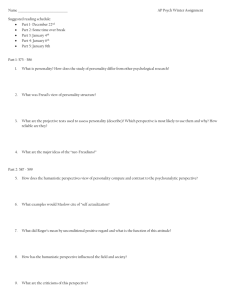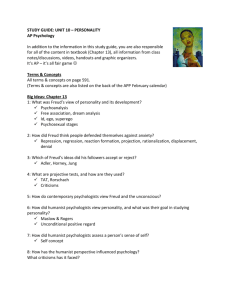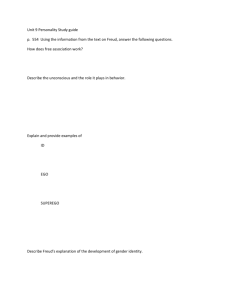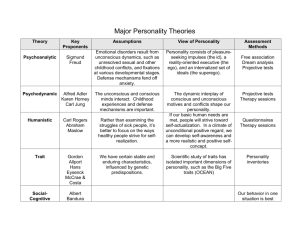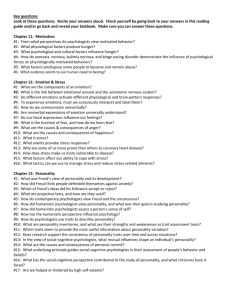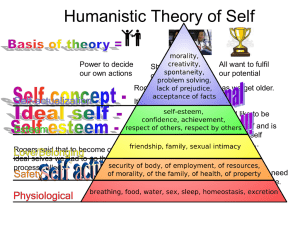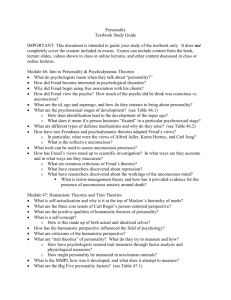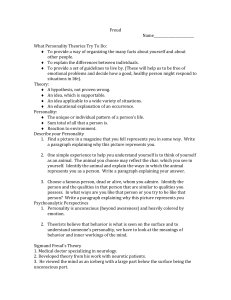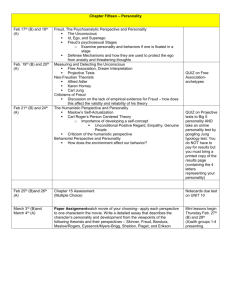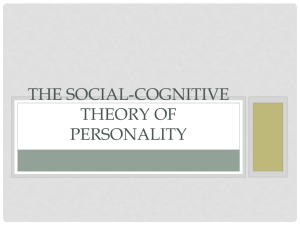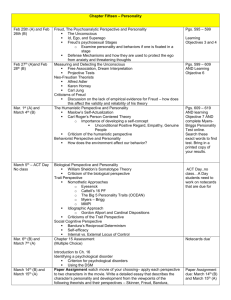Unit 10 Personality
advertisement
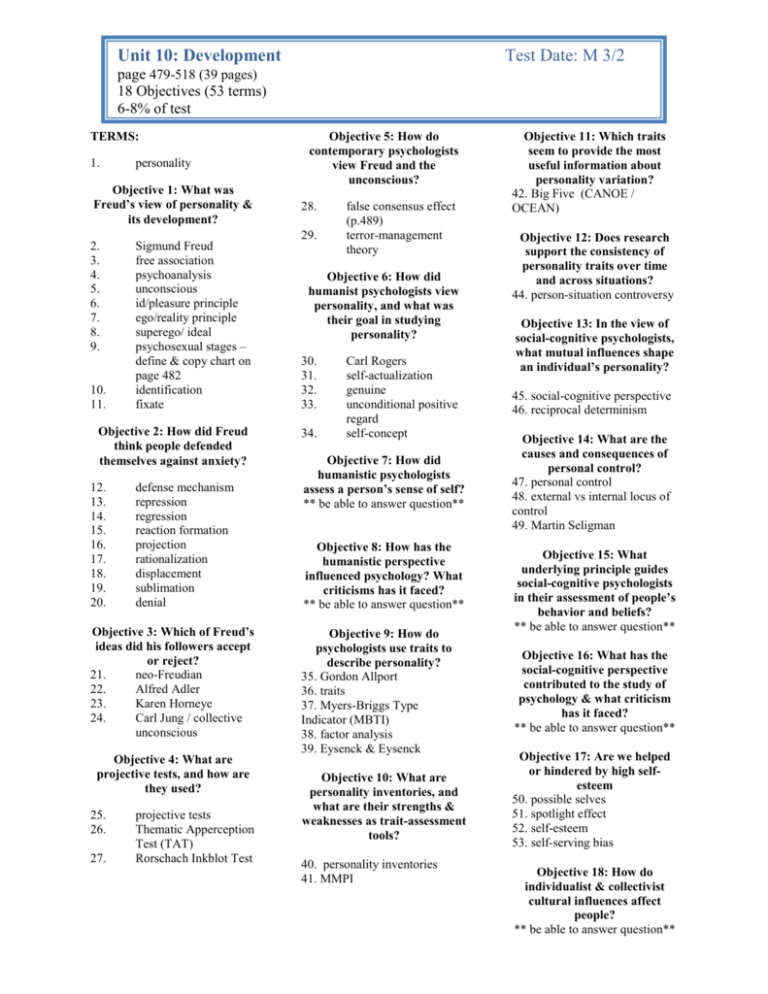
Unit 10: Development Test Date: M 3/2 page 479-518 (39 pages) 18 Objectives (53 terms) 6-8% of test TERMS: 1. personality Objective 1: What was Freud’s view of personality & its development? 2. 3. 4. 5. 6. 7. 8. 9. 10. 11. Sigmund Freud free association psychoanalysis unconscious id/pleasure principle ego/reality principle superego/ ideal psychosexual stages – define & copy chart on page 482 identification fixate Objective 2: How did Freud think people defended themselves against anxiety? 12. 13. 14. 15. 16. 17. 18. 19. 20. defense mechanism repression regression reaction formation projection rationalization displacement sublimation denial Objective 3: Which of Freud’s ideas did his followers accept or reject? 21. neo-Freudian 22. Alfred Adler 23. Karen Horneye 24. Carl Jung / collective unconscious Objective 4: What are projective tests, and how are they used? 25. 26. 27. projective tests Thematic Apperception Test (TAT) Rorschach Inkblot Test Objective 5: How do contemporary psychologists view Freud and the unconscious? 28. 29. false consensus effect (p.489) terror-management theory Objective 6: How did humanist psychologists view personality, and what was their goal in studying personality? 30. 31. 32. 33. 34. Carl Rogers self-actualization genuine unconditional positive regard self-concept Objective 7: How did humanistic psychologists assess a person’s sense of self? ** be able to answer question** Objective 8: How has the humanistic perspective influenced psychology? What criticisms has it faced? ** be able to answer question** Objective 9: How do psychologists use traits to describe personality? 35. Gordon Allport 36. traits 37. Myers-Briggs Type Indicator (MBTI) 38. factor analysis 39. Eysenck & Eysenck Objective 10: What are personality inventories, and what are their strengths & weaknesses as trait-assessment tools? 40. personality inventories 41. MMPI Objective 11: Which traits seem to provide the most useful information about personality variation? 42. Big Five (CANOE / OCEAN) Objective 12: Does research support the consistency of personality traits over time and across situations? 44. person-situation controversy Objective 13: In the view of social-cognitive psychologists, what mutual influences shape an individual’s personality? 45. social-cognitive perspective 46. reciprocal determinism Objective 14: What are the causes and consequences of personal control? 47. personal control 48. external vs internal locus of control 49. Martin Seligman Objective 15: What underlying principle guides social-cognitive psychologists in their assessment of people’s behavior and beliefs? ** be able to answer question** Objective 16: What has the social-cognitive perspective contributed to the study of psychology & what criticism has it faced? ** be able to answer question** Objective 17: Are we helped or hindered by high selfesteem 50. possible selves 51. spotlight effect 52. self-esteem 53. self-serving bias Objective 18: How do individualist & collectivist cultural influences affect people? ** be able to answer question**
